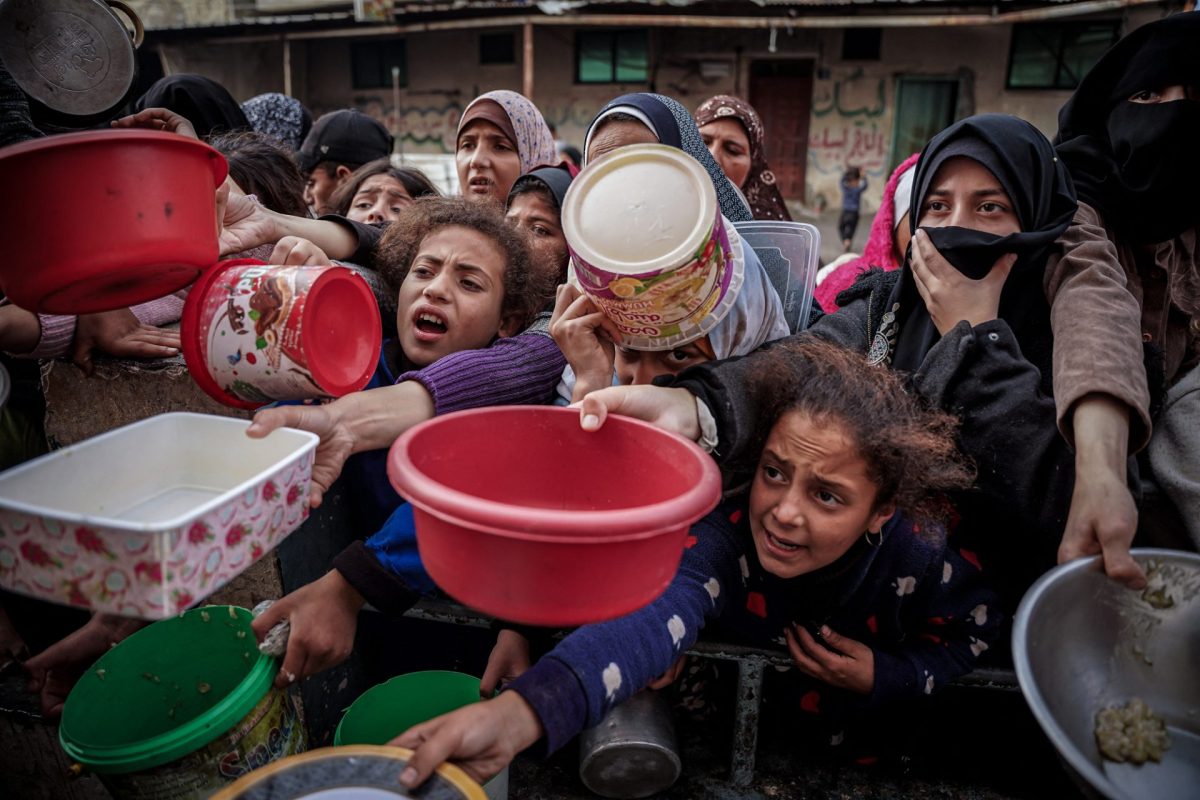“There’s almost no food available and everybody we talked to begs for food,” Sean Casey, an emergency coordinator for the WHO said during a news briefing Wednesday.
Casey, who has carried out several WHO missions to northern Gaza, stated each time his team delivered medical supplies to the region, they were asked to bring food the next time.
“That’s not possible for a number of reasons including coordination and security concern,” Casey added.
WHO has “no communication with entire areas”, but Casey said when he meets a patient who has had a double amputation and asks for food or water, it is clear “they’re not getting their basic needs met”.
The WHO was unable to reach northern Gaza since December 26 and was forced to cancel six planned missions, according to briefing notes.
Many people in central Gaza are also going hungry because there is not enough food coming in, Casey continued.
Even in southern Gaza, closest to the Rafah border crossing with Egypt where deliveries are received, not many people are eating a full meal a day, he said, adding, “It’s a horrific situation across the board.”
WHO Director-General Tedros Adhanom Ghebreyesus also said Wednesday although many around the world rang in the new year earlier this month, “2024 is not a happy new year”.
This Sunday will mark 100 days since the Israel-Hamas conflict, Tedros noted, adding that “the situation is indescribable”.
In Gaza, “People are standing in line for hours for a small amount of water, which may not be clean, or bread, which alone is not sufficiently nutritious. Only 15 hospitals are functioning, even partially”, Tedros said.
“Delivering humanitarian aid in Gaza continues to face nearly insurmountable challenges. Intense bombardment, restrictions on movement, fuel shortages and interrupted communications make it impossible for WHO and our partners to reach those in need,” he continued, adding, “We have the supplies, the teams and the plans in place. What we don’t have is access.”
Disruptions to the health care and water sanitation systems, the lack of food and water as well as having people displaced in the winter is “a cocktail for diseases”, said Dr. Richard Peeperkorn, the WHO’s representative in the occupied Palestinian territories.
WHO Health Officer Dr. Teresa Zakaria, the incident manager for the escalation of violence in Israel and the occupied Palestine territories, stated the agency’s surveillance systems are capturing the manifestation of diseases, but they aren’t able to verify the bacteria, parasite or virus causing the illnesses.
“We have seen increased reports of acute respiratory infections, diarrheal diseases, jaundice. But again, these are just manifestations of multiple diseases and we can’t get to the bottom of it because we’re not in a position to even test, collect samples and test,” she added.
“We don’t know what we’re dealing with,” she said, adding, “There are a lot of diseases that may actually just spread undetected and that is extremely concerning because by the time we actually find out about it, it will be at a very late stage for which then containing it will be extremely difficult.”
The agency canceled six planned missions to northern Gaza since December 26 “because our requests were rejected and assurances of safe passage were not provided”, the director-general continued.
